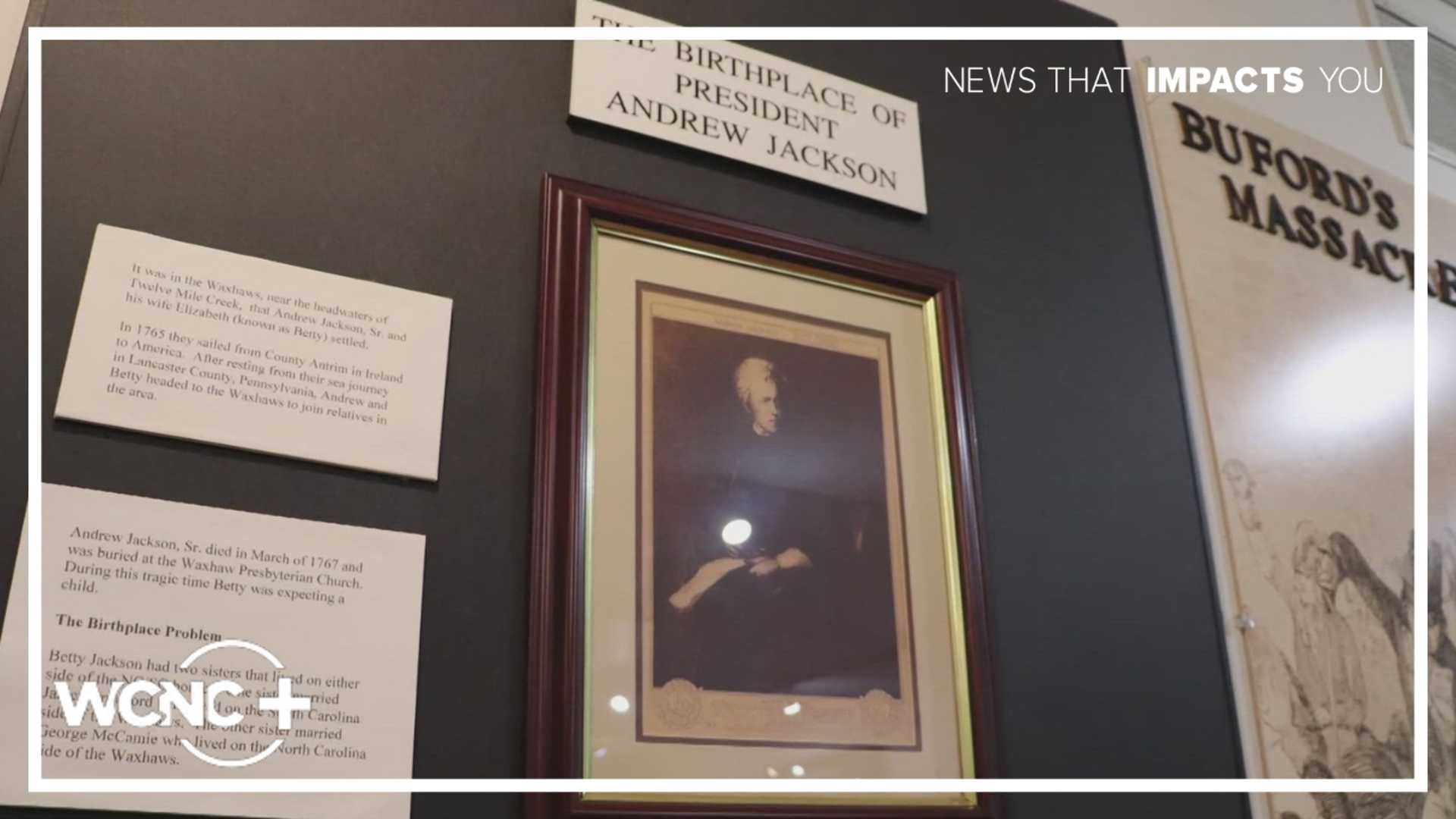News
Charlotte Area Celebrates Birthplaces of Two Historic U.S. Presidents

CHARLOTTE, N.C. — Each Presidents Day, the 45 men who have served as Presidents of the United States are honored, with a focus on their early lives, including the significance of their birthplaces. In the Charlotte area, two U.S. presidents, Andrew Jackson and James Knox Polk, were born close to each other, despite launching their political careers in Tennessee.
The area showcases two sites of presidential significance — the Museum of the Waxhaws in Waxhaw for Andrew Jackson and the President James K. Polk State Historic Site in Pineville. These sites aim to educate the public about their lives and the historical context of their presidencies.
The Museum of the Waxhaws honors Jackson, the seventh president, featuring an 1830s log cabin, a representation of the type of home he was born into. Kaitlin Dobbins, the museum’s executive director, noted that the exact birthplace of Jackson is debated, with claims from both North Carolina and South Carolina. “They just like to argue about it,” Dobbins explained, referring to the local lore surrounding Jackson’s birth on March 15, 1767.
Though the specific location remains uncertain, the museum captures the essence of Jackson’s upbringing as he was born into a family of modest means. “His family wasn’t wealthy, they weren’t high class in society, which I think impacted the way that he acted as president,” Dobbins added.
Jackson’s early life was marked by hardship; he served in the American Revolutionary War as a teenager before studying law. He became a prosecutor in Western North Carolina, which later became part of Tennessee. His political career thrived in Tennessee, where he reached the state’s Supreme Court and was elected a U.S. Senator.
Jackson’s first presidential attempt in the 1824 election resulted in his election loss to John Quincy Adams, despite Jackson winning a plurality of Electoral College votes. This prompted outcries from his supporters about a “corrupt bargain.” However, Jackson achieved electoral victory in 1828 with the newly formed Democratic Party, marking the beginning of his presidency characterized by significant historical and social controversies, including the Indian Removal Act of 1830.
Jackson’s legacy also includes his opposition to the Second Bank of the United States and the Nullification Crisis. After serving two terms, he retired to Tennessee, influencing future politicians, including another Charlotte-area native, James Knox Polk.
About 20 miles northwest lies the President James K. Polk State Historic Site, which reflects the life of the 11th president, born in Pineville in November 1795. Scott Warren, the site’s Historic Site Manager, notes that while Polk spent his early years in North Carolina, his family moved to Tennessee when he was 10, establishing a strong connection to that state.
The site includes a reconstruction of the log cabin where Polk was born, which housed about 12 residents, including enslaved individuals. Warren emphasizes the site’s role in educating visitors about both Polk’s family and the history of enslaved people in the area.
Despite health struggles during his youth, Polk excelled academically and eventually practiced law in Tennessee. His political ascent included notable positions such as the State Senate and Speaker of the U.S. House of Representatives. Elected in 1844 as a “dark horse” candidate, he campaigned on a platform focused on territorial expansion and tariff reduction.
Polk’s presidency was marked by an aggressive expansionist agenda, resulting in the acquisition of significant territory through negotiations and military conflict. His presidency added Texas and California to the United States, reshaping the country’s landscape. However, these territorial expansions intensified debates over slavery and contributed to the sectional tensions leading to the Civil War.
Polk is also notable for several presidential firsts, including being the first president to ride in a train and the first to have his inauguration telegraphed. The Polk Historical Site is open Tuesday to Saturday from 9 a.m. to 5 p.m., providing visitors with insights into both his life and the broader historical context.












